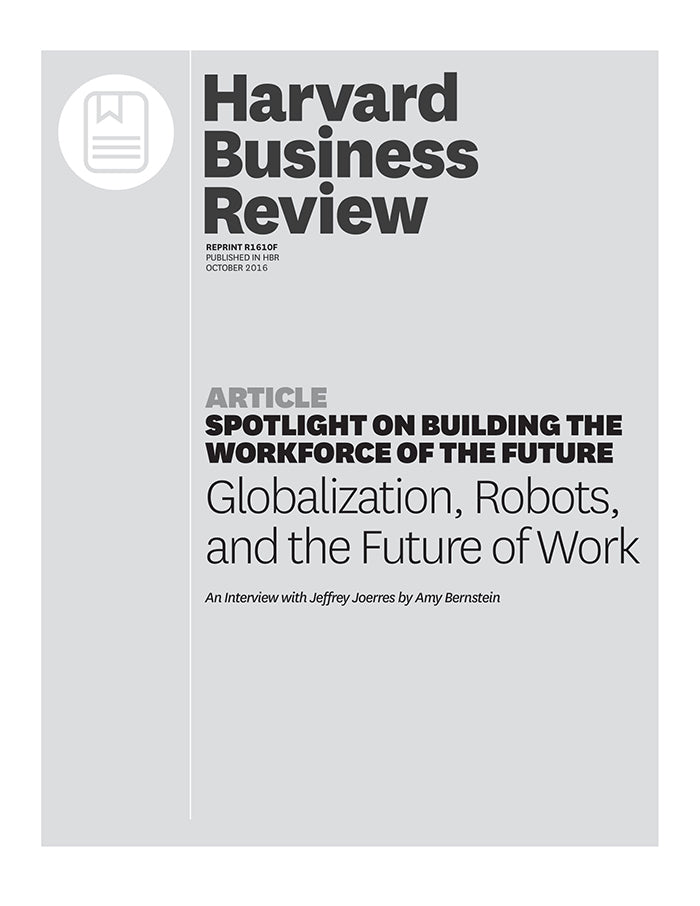Globalization, Robots, and the Future of Work
受取状況を読み込めませんでした
When Jeffrey Joerres first joined Manpower, in 1993, the labor market was relatively stable and the company still focused largely on traditional office, clerical, and industrial staffing. But since then globalization and rapid advances in technology have dramatically reshaped the employment landscape. During his 15 years as CEO, Joerres expanded the company's international operations and moved into the increasingly competitive market for IT, finance, and engineering professionals. In this interview with HBR's editor, he describes how micromarket analysis reveals "geolocated pools of skills" that businesses can tap--until competitors muscle in, deplete the skills pool, and drive up wages. So companies must acquire a "nomadic mentality" that will allow them to establish more-temporary, smaller operations as well as large ones. He acknowledges that "when full-scale robotics and artificial intelligence arrive in a broad-based, affordable, easily justifiable way," hordes of workers will be displaced, with little or no preparation for very different jobs. Joerres advises companies that want to develop a workforce strategy to put multiple work models in place--crowdsourcing, distant manufacturing, temporary contractors moving to full-time--and truly practice them. "When are we done with this efficiency thing?" he says. "The answer is never."
【書誌情報】
ページ数:7ページ
サイズ:A4
商品番号:HBSP-R1610F
発行日:2016/10/1
登録日:2016/9/21


